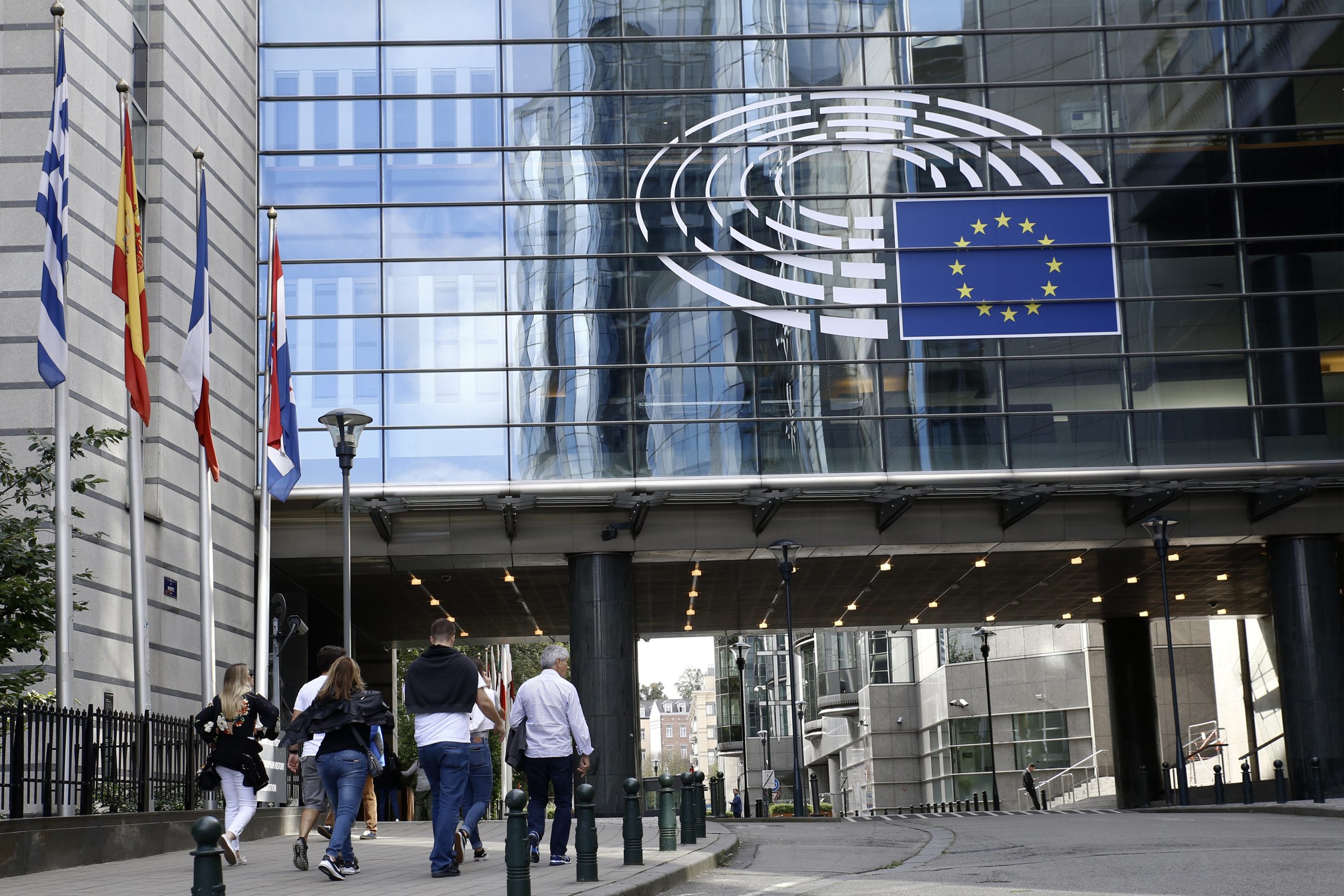Norbert TRIBL: Trends and Shadows: the Future of European Constitutional Courts
Perhaps one of the biggest challenges we have faced in recent years is the future of Europe and European integration. Since its inception, the European Union has been built on compromise, for want of a better solution, and has been in a constant search for a way forward: how do we define European unity? What is the goal of European unity? It is a process that determines and shapes the constitutional arrangements of the Member States involved in it, and, of course, conversely, the constitutional development of the Member States must also shape the development of the European integration process and, in this context, the European legal order, which is now symbiotically united with the constitutional and legal systems of the Member States.
One of the most important areas in the discourse on the European dimension of constitutional law is the relationship between the CJEU and national constitutional courts, as the former is the authentic interpreter of EU law, while the latter is an authentic, erga omnes interpreter of national constitutions. However, the issue of the relationship between these organs is in itself a consequence of the relationship between EU law and national constitutions being only seemingly regulated, based on a fragile state of balance below the surface.
The principle of the primacy of EU law over the constitutions of the Member States is not an expressis verbis clause laid down in the Treaties: the CJEU developed them in the van Gend en Loos and then the Costa v. E.N.E.L. decisions as general principles of EU law in the 1970s. However, the practice of the CJEU did not (even then) receive unreserved support from the Member States. From the 1970s onwards, the German Federal Constitutional Court declared in the Solange decisions that it reserved the right not to apply EU law against to German constitution if certain conditions were met.
However, over the decades, the European Union has become a community of values and internal tensions have intensified. The potential conflict between EU law and national constitutions has become a seemingly political debate, becoming a more and more often used synonym for Euroscepticism. Meanwhile, the absolute primacy of EU law over national constitutions has become a doctrine. However, the risk of destabilization is coded into a system, which is based on an implicit integration of the absolute, no-exception primacy of EU law.
In the midst of increasingly heated political debates, one of the most important legal problems of European integration remains, and we pay a serious price manifested in constitutional law for the lack of political consensus: certain parts of the relationship between the European Union and the Member States must be determined by the national constitutional courts and the CJEU. Thus, a force field is created where the originally neutral constitutional interpreters start to actively shape the integration process supplementing the original functions of the continental (Kelsenian, centralized) system of constitutional justice. Due to the unstable situation created by the Treaties, Member States’ constitutional interpreters have been given a de facto new obligation: “to make heads or tails” of the relationship between the EU legal order and the Member States’ constitutional systems, of which they are the gatekeepers. If we approach this issue dogmatically, we could even say that in the continental, centralized model of constitutional justice, the functions of constitutional courts are complemented by a kind of “integrational function”. The relationship between national constitutional courts and the CJEU, and the primacy of EU law over the constitutions of the Member States, has been and still is sought to be maintained by the European Constitutional Dialogue, while the claim to define these relations simultaneously supports the need to protect constitutional identity. Perhaps, however, the real question is whether EU law takes precedence over national constitutions.
As we know, the European Union has no sovereignty of its own. Its existence, powers and nature depend on the will of the Member States. Consequently, the European Union cannot go against the will of the Member States. German constitutional doctrine refers to this direction, which is in accordance with the will of the Member States and can be read in the Treaties, as the ‘Integrationsprogramm’. This common program is practically ‘the soul of European integration’. The prevailing view in the EU approach is that EU law and integration itself must be defended by the EU institutions, in particular the Court of Justice of the European Union. This is, of course, beyond dispute, but it is important to note that this does not imply absolutism. On the contrary: the idea of integration, the Integrationsprogramm, must be defended from two sides: on the one hand, from the side of the Union, so that the Member States cannot infringe the provisions of the Treaties, and on the other, from the side of the Member States, so that the Union itself cannot go beyond the scope of the Treaties.
The other side of the coin is the responsibility of the constitutional institutions to comply with the provisions of the Treaties and to act in the spirit of the Treaties at all times, which is called in the German constitutional la as “Integrationswerantwortung”. The national constitutional courts, like the Hungarian or German one, are the supreme guardians of the national constitutions and are responsible for ensuring that the process of European integration remains within the framework of the Treaties and does not thereby undermine the integrity of the constitutional order of the Member States, which the Treaties themselves are designed to protect.
Just as we distinguish between substantive law and constitutional law rules in national law, we can distinguish by analogy between the “ordinary provisions” of the European legal order and the fundamental provisions arising from supranationalism. The primacy of EU law is beyond dispute, which is also safeguarded by the CJEU. However, the CJEU and the EU institutions are not federal bodies above the Member States, but they are much more like the Member States themselves, subordinated to the consensual frames of the Founding Treaties in the integration process. European national constitutional courts, collectively, can build a bridge that can establish a balance between national legal systems and the supranational structures of the European Union. Based on all this, the European system of constitutional justice seems to play a key role in this constitutional matrix of responsibility for the integration process.
However, the coin has two sides: the so called PSPP decision of the GFCC (2 BvR 859/15) has raised serious concerns across Europe and the German state (or more precisely the German government!) has guaranteed the European Union that the GFCC will not go down this path. In addition, the above describes a trend in the practice of the European Constitutional Courts, which is not necessarily in line with the evolving practice of the CJEU. Just to give one example: In Joined Cases of C‑357/19, C‑379/19, C‑547/19, C‑811/19 and C‑840/19 the CJEU has made a decision which partly provided for the admissibility of decisions of national constitutional courts. According to this decision, “Article 2 TEU, the second subparagraph of Article 19(1) TEU and Decision 2006/928 are to be interpreted as not precluding national rules or a national practice under which the decisions of the national constitutional court are binding on the ordinary courts, provided that the national law guarantees the independence of that constitutional court in relation, in particular, to the legislature and the executive, as required by those provisions. However, those provisions of the EU Treaty and that decision are to be interpreted as precluding national rules under which any failure to comply with the decisions of the national constitutional court by national judges of the ordinary courts can trigger their disciplinary liability.”
The decision states as well that “the principle of primacy of EU law is to be interpreted as precluding national rules or a national practice under which national ordinary courts are bound by decisions of the national constitutional court and cannot, by virtue of that fact and without committing a disciplinary offence, disapply, on their own authority, the case-law established in those decisions, even though they are of the view, in the light of a judgment of the Court of Justice, that that case-law is contrary to the second subparagraph of Article 19(1) TEU, Article 325(1) TFEU or Decision 2006/928.”
The approach of the CJEU places the national constitutional courts in a hierarchical system where the ordinary courts of the Member States (including the higher courts of the Member States), the national constitutional courts and the CJEU are organized in a single hierarchical order, with the CJEU at the top. By contrast, the national constitutional courts, on the basis of the national constitutions and the Founding Treaties, seek to establish a system of relations between the European courts which respects the sovereignty of the Member States and is based on the competences of the European Union and the Member States. Doing this in accordance with the requirement of legal certainty (and therefore the rule of law) requires reliance on bi-directional dialogue and collegiality in building the European constitutional space by maintaining the delicate balance between the ever closer union clause and the narrative of unity in diversity.
Norbert TRIBL is a senior lecturer at the International and Regional Studies Institute of the University of Szeged. He received his PhD in 2020, his thesis is on the applicability of constitutional identity in the European supranational space. He studied economics from 2019-2022. In 2023, he passed the Hungarian bar exam. As a university lecturer, he teaches State Theory and Constitutional Law. As an advisor to the Hungarian Constitutional Court between 2020 and 2023, he examined the place of the constitutional courts of the Member States of the European Union in the integration process, mainly from the perspective of constitutional identity and the responsibility of constitutional courts for integration. He is currently the Dean’s representative for public relations at the Faculty of Law and Political Sciences of University of Szeged. He is currently a member of the Digitalization and Democracy research group of the Societal Challenges Competence Centre of the Humanities and Social Sciences Cluster of the Centre of Excellence for Interdisciplinary Research, Development and Innovation of the University of Szeged, where he is examining the impact of the technology sector and the digitalizing world on essential state functions and state sovereignty. Since 2020, he has been the editor of the Constitutional Discourse Blog. E-mail: editor@condiscourse.com








